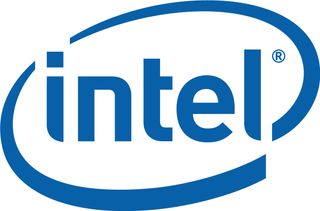Intel Patents 'Multiplying Two Numbers'
There are countless ways of multiplying two numbers such as 15 * 15.

Even if you don't live in mathematics, you just need to be the parent of a third grader to know that there are simple, complex, confusing and very efficient ways how to calculate the product of two numbers. In fact, efficiency is a big deal still today, especially in computer sciences, and it is quite fascinating to watch the work that is going on in this area.
Intel was granted today a patent that is simply headlines as "multiplying two numbers." It is based on the fast Karatsuba algorithm, which has been around for about 50 years and has been improved several times since its publication in 1962. Intel's patent addresses extremely large numbers for cryptography applications and the bottleneck of 32-bit and 64-bit processors when they are dealing with protocols that include numbers ranging from 1024 to 4096.
The patent does not reveal exact numbers on how much faster the technique could work when compared to previous approaches. However, at least partial tests mentioned in the patent suggest that just modular reduction approaches can accelerate 512 bit number operations by 27% and up to 177% for 4096 bit numbers.
Stay on the Cutting Edge
Join the experts who read Tom's Hardware for the inside track on enthusiast PC tech news — and have for over 25 years. We'll send breaking news and in-depth reviews of CPUs, GPUs, AI, maker hardware and more straight to your inbox.
-
ikefu Patenting math seems like seems like a very bad and corrupt patent. You didn't invent the math, you just discovered it. How can you prevent other companies from multiplying numbers in one way or another. That's bad for the industry and bad for consumersReply
Now, if you want to patent a particular circuit that uses said approach of multiplying the numbers. More power to you! You actually invented that and its yours by rights. But you need to patent the invention and not the discovery.
Just because Newton discovered gravity doesn't mean he had exclusive rights to it and could sue anyone else who decided to use gravity to in their inventions. -
Marco925 I Patent Division!!!!Reply
Don't cross me or i'll divide by 0. that will destroy EVERYTHING!!! -
gerchokas ikefuPatenting math seems like seems like a very bad and corrupt patent. You didn't invent the math, you just discovered it. How can you prevent other companies from multiplying numbers in one way or another. That's bad for the industry and bad for consumersReply
Now, if you want to patent a particular circuit that uses said approach of multiplying the numbers. More power to you! You actually invented that and its yours by rights. But you need to patent the invention and not the discovery.
Just because Newton discovered gravity doesn't mean he had exclusive rights to it and could sue anyone else who decided to use gravity to in their inventions.
K2N haterI guess whoever approved it can barely do 1+1.
Im equally indignated. What's next, patenting ways to breathe?? Patents are private, and gradually, they're patenting freedom.. -
ericburnby The people who say they are patenting math obviously know nothing about computer software at the lowest levels.Reply
It seems clear to me that Intel has come up with a specific method of manipulating bits to come up with a result that's much quicker than previous methods.
For example, you can't patent a word processor, but if your word processor uses specific algorithms to make it perform better than someone else, then you should be allowed to patent those specific algorithms. And you should be allowed to have some form of recourse if another company somehow obtained your code and used it to improve their products. Hence getting a patent on an algortihm. -
gerchokas ericburnbyThe people who say they are patenting math obviously know nothing about computer software at the lowest levels.It seems clear to me that Intel has come up with a specific method of manipulating bits to come up with a result that's much quicker than previous methods.For example, you can't patent a word processor, but if your word processor uses specific algorithms to make it perform better than someone else, then you should be allowed to patent those specific algorithms. And you should be allowed to have some form of recourse if another company somehow obtained your code and used it to improve their products. Hence getting a patent on an algortihm.Reply
Anyway, an algorithm IS mathematic. In fact, every aritmethic/logical ecuation you use for a function IS an algorithm.
So where is that slim line where you can say "this is universal, and this what I discovered". There shouldnt be any. -
razzb3d I swear, if these companies don't stop patenting nonsense i'll become a mad scientist, develop a terrible weapon of mass destruction and END US ALL!!!!Reply
-
husker "...when they are dealing with protocols that include numbers ranging from 1024 to 4096."Reply
Should read "...1024 to 4096 bits in length"
4096 x 4096 is only 16,777,216 and almost any calculator can do that math.
A 4096 bit number is something in the range of 1 with a thousand 0's after it. Now try multiply 2 of them together. -
ericburnby gerchokasAnyway, an algorithm IS mathematic. In fact, every aritmethic/logical ecuation you use for a function IS an algorithm.So where is that slim line where you can say "this is universal, and this what I discovered". There shouldnt be any.Reply
Using your logic no software should be allowed to be copyrighted or have a patent. No method for doing video/audio compression. No security algorithms. Not even a game, since all software, no matter what it does, can be broken down into mathematics.
Most Popular



